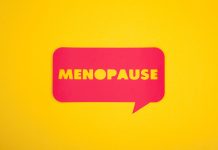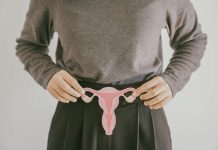Maintaining a healthy diet is essential at all stages of life, especially in menopause. Here Dr Deborah Lee lays out 10 tips for a balanced menopause diet
We all know that menopause is a turbulent time in a woman’s life. Symptoms such as hot flushes, night sweats, tiredness, emotional lability and brain fog make life very difficult to cope with.
But in addition, it can be confusing knowing what you should or shouldn’t be eating. You are what you eat. And this is especially true at and after menopause.
Here are 10 tips for your menopause diet based on current medical evidence.
Why does your menopause diet matter?
Female menopause is due to ovarian failure. Their ovaries no longer respond to follicle-stimulating hormone (FSH) as they did in earlier reproductive life. As a result, FSH levels climb, but estrogen levels plummet to more than 90% of their premenopausal value.
This has two major health consequences. Firstly, a woman’s risk of cardiovascular disease catches up with that of men – meaning they are now at an increased risk of a heart attack or a stroke.
Secondly, they lose an appreciable amount of bone, increasing their risk of osteoporosis (brittle bones) and fractures.
Much of the dietary advice below aims to improve both of these, plus other health outcomes. Eating well at and after menopause has been shown to help control menopausal symptoms.
-
Calcium and vitamin D
Women lose an average of 10% of their bone mineral density during the perimenopausal transition.
But an unknown 50% of women, are ‘fast bone losers’ who lose up to 20% of bone mass. This does not cause any symptoms until they have a fracture. Having an adequate intake of calcium and vitamin D is vital for optimal bone health.
Women need vitamin D to absorb calcium from the gut
Vitamin D is needed to absorb calcium from the gut, and vitamin D absorption from the gut becomes less efficient at and after menopause.
Vitamin D supplements
The British Dietetic Association (BDA) also recommends that over the winter months, from October to the end of March, women consider taking a vitamin D 10 IU (400 mcg) supplement.
As the days are dark and short in the winter, there is less opportunity to manufacture vitamin D in the skin from sunlight. Women aged 65 and over, and those with darker skin should consider taking a vitamin D supplement all year round.
Calcium supplements
Postmenopausal women need 1200 mg of calcium per day. If this is not possible by dietary means, calcium supplements should be considered. This should be discussed with their GP.
-
Healthy unsaturated fats – including omega 3
The body needs healthy unsaturated fats, found in plants and oily fish. However, it’s best to avoid saturated fats which are mostly animal fats (but also coconut and palm oil). Olive, sunflower, rapeseed, corn, avocado and walnut oils are all unsaturated fats and are excellent choices.
Fatty fish contain omega-3 polyunsaturated fats – such as salmon, trout, mackerel and herring. Omega-6 is found in soy products, sunflower and canola oil. Ideally, eat two portions of fatty fish per week.
Unsaturated fats lower cholesterol
A diet high in unsaturated fats has been shown to lower cholesterol. It lowers LDL (bad) cholesterol, raises HDL (good cholesterol) and lowers triglycerides. Research shows that a diet high in unsaturated fat reduces the risk of dying prematurely from heart disease.
Saturated fats lower cognitive function
Research suggests that a diet high in saturated fat has a negative effect on cognition and other aspects of brain function. In one 2012 study of 6,183 older participants, those with the highest intake of saturated fatty acids had the lowest cognitive and verbal memory scores.
A higher intake of monounsaturated fatty acids was associated with the best cognitive and verbal memory scores. The difference equated to 6 years of ageing.
Saturated fats are linked to the development of vascular dementia and Alzheimer’s Disease. Saturated fats cause brain inflammation and increase oxidative stress. They also affect insulin signalling and cause apoptosis (destruction) of brain neurons.
On the other hand, polyunsaturated fats regulate many brain processes, including neurotransmission and cell survival, and lower inflammation. The brain needs healthy fats to function properly.
A diet deficient in these fats can lead to poorer cognition and mood disorders.
-
Eat more fibre
We should all be eating more fibre, and this is particularly important for peri and postmenopausal women. To meet current recommendations, all UK adults should have 30 g of fibre per day in their diet. We can do this by regularly eating high-fibre foods.
Fibre plays a vital role in the gut
Fibre is an indigestible carbohydrate – meaning you eat it at the top end, and it passes out at the bottom end, largely unchanged. But fibre plays a vital role when inside the intestines, assisting with intestinal transport and function.
Fibre bulks out the intestinal contents, ensuring they exert enough pressure on the gut wall to stimulate peristalsis – the muscular contractions that propel the gut contents along the GI tract.
If the transit time is too slow, there is more time for absorption of water and cholesterol – meaning a diet low in fibre causes constipation and results in higher cholesterol levels.
How to eat more fibre
Eat more wholegrains – as their name suggests, these are the seeds of cereal plants which have been left intact. Whole grains have three different constituents – the bran, the germ and the endosperm.
When grains are refined, the bran and the germ are removed, so only the endosperm remains.
The bran is high in fibre, and the germ is rich in nutrients. It is far healthier to eat unrefined (whole) grains. It’s easy to do this – just swap white bread, pasta and rice for the brown, wholegrain alternatives.
Also, eat more beans, chickpeas, and lentils. They are packed full of fibre. Get in the habit of adding them to soups, stews and salads or snacking on them as dips.
Many fruit and vegetables are high in fibre, especially in the skin. Get in the habit of washing fruit and veg but leaving the skin on when you can.
-
Make sure you have 10-a day
Fruit and vegetables are packed full of health-giving antioxidants. Nutritionists now recommend not 5 – but 10 – a day. Here’s why.
The role of antioxidants in the diet
Every day, a chemical process called oxidation is taking place in each cell of the body to give the cell energy for its cellular processes.
As a by-product, electrically charged particles called ‘reactive oxygen species’ (ROS) are produced.
ROS are dangerous as they have the potential to damage DNA, and this process is thought to underpin the development of many of the chronic diseases we see today – high blood pressure, heart disease, type-2 diabetes, cancer and dementia.
Antioxidants, found in large quantities in fruit and vegetables, are able to neutralise ROS and counteract these harmful effects. This means eating lots of fruit and veg can help ward off many chronic diseases and keep you well.
Eating more plant foods can reduce hot flushes
The 2021 Women’s Study for the Alleviation of Hot Flushes (WAVS) included 38 postmenopausal women having at least 2 hot flashes per day. They were randomised to either a vegan diet which included half a cup (86g) of soybeans per day, or no change to their diet, for 12 weeks.
After this time, a 79% overall reduction in hot flushes was noted in the soybean group and a 49% decrease in the group with no diet change – the difference was highly statistically significant.
Moderate to severe hot flushes decreased by 82% in those who ate soybeans and by 42% in the control group. All the psychosocial, physical and sexual aspects of the Quality of Life questionnaire used in the study were significantly improved in the soybean group as compared to the controls.
How do isoflavones reduce hot flushes?
Soybeans contain large quantities of isoflavones, notably genistein, daidzein, and glycitein. Gut bacteria metabolise daidzein to equol which then stimulates alpha and beta estrogen receptors.
Eating a plant-based diet also increases the diversity of gut bacteria. Vegetarians are known to produce more equol than omnivores.
Throughout the WAVS study, the soybean group also lost an average of 3.5 Kg. Other studies have shown that weight loss results in fewer hot flashes.
Phytoestrogens are found in flax seeds, berries, carrots, apples, rice, sesame seeds, wheat, barley, dried beans, chickpeas, lentils, wheat germ and green tea.
-
Eat more protein
After menopause, women start to lose muscle strength. This is called sarcopenia and is believed to be largely due to low levels of estrogen.
Some studies have shown HRT can help preserve skeletal muscle, but others have had different results. Sarcopenia is linked to osteopenia.
How to build muscle
To build muscle, women need to eat more protein, as well as do resistance exercises. They should eat 25 g of lean protein at every meal, for example, chicken, turkey, eggs, fish, soy, beans and legumes. Full-fat Greek yoghurt is also an excellent source of protein.
Plant-based diets have much to commend them and can contain all the protein you need. They have been shown to lower blood pressure and reduce the risk of heart disease and type-2 diabetes.
Eating soy products can also be beneficial for menopausal women because of their high content of isoflavones – plant estrogens – which ]help relieve menopausal symptoms such as hot flushes.
-
The Mediterranean Diet
An easy way to eat the right things during and after menopause is to follow the Mediterranean Diet (MD), which is an ideal diet for menopausal women.
The concept of the MD originated from the diet of people living around the Mediterranean Sea. Studies have shown that adherence to the MD helps prevent cardiovascular disease and obesity, increases lifespan and supports healthy ageing.
How to follow the MD
The MD consists of lean meat, poultry and fish, healthy wholegrains, unsaturated fats and large amounts of fruit and vegetables, nuts, seeds, beans and legumes.
Eat oily fish twice a week. Try to avoid eating animal fats such as butter, cream and lard. Reduce eating red meat to only a few times a month. You can eat cheese and yoghurt, but stick to small portion sizes. Keep alcohol intake to no more than one glass per day. Stay well hydrated by drinking plenty of water.
Being varied and interesting with lots of colourful foods and recipes, the MD is a diet you can enjoy and stick to for life. It contains all the necessary menopausal dietary components – calcium, vitamin D, unsaturated fats, fibre and antioxidants.

-
Don’t eat processed foods
Eating processed foods can worsen menopausal symptoms. A 2021 review of dietary intake and menopausal symptoms concluded that processed foods and any foods high in saturated fat and sugar made menopausal symptoms worse. Processed foods are also often high in salt.
What are processed foods?
These are any foods that have been modified, such as refining, canning, freezing, bottling or drying. For example, cakes, biscuits, pastries, desserts, bacon, salami, sausages, takeaways, fast food, chips, doughnuts, crisps, salty snacks, chocolate, ice cream and sweet or fizzy drinks.
Menopausal women should do their best to avoid these foods or eat them only occasionally, swapping them for healthier alternatives
-
Lower your salt intake
The World Health Organisation (WHO) recommend adults don’t consume any more than 5g of salt per day. Most adults currently take in 9-12g per day – around twice the recommended amount.
A high salt intake results in high blood pressure and increase the risk of heart disease, hence menopausal women need to reduce the salt intake in their diet.
How to reduce salt in your diet
Read food labels and look for low-salt options. Don’t add salt to food – flavour it with herbs and spices instead. Avoid salty snacks.
Don’t put the salt seller on the table. Take care to use low-salt stock cubes and sauces. Avoid processed foods which are often high in salt. Drink lots of water.
-
Probiotic and prebiotics
Low estrogen levels also affect the diversity of the gut microbiome. Estrogen and progesterone are also known to help maintain the integrity of the gut wall.
At and after menopause, low levels of these hormones can predispose to a ‘leaky gut’, which allows microbes and other toxic metabolites to enter the bloodstream via the gut wall.
This is a new area of medical research. However, menopausal women can improve their microbiome by ensuring they include probiotics and prebiotics in their diet.
What are probiotics?
These are live bacteria and yeasts, ingested in food, which then live happily inside the gut. These organisms are found in fermented foods such as live yoghurt, buttermilk, sourdough bread, cottage cheese, pickled foods, kimchi, tempeh and sauerkraut.
What are prebiotics?
Once ingested, these substances provide a food source for many of the gut bacteria. The bacteria feed off the prebiotic and produce healthy short-chain fatty acids which have benefits for health such as supporting the immune system and lowering inflammation. Prebiotics are found in foods such as whole grains, rice, barley, oats, legumes beans, bananas, onions and garlic.
-
Manage your weight
Obesity is common in postmenopausal women – 43% of postmenopausal women are obese (have a BMI of over 30). A BMI of over 35 reduces your lifespan by up to 14 years. If women can lose weight and maintain their weight within the health range, this has many benefits.
Which diet to follow?
There is no magic weight loss diet. Despite extensive research, no specific diet is better than any other for losing weight and keeping it off. The underlying principle is the same – you need to eat less and exercise more. Doing this means finding a diet that you find acceptable and that you can stick to long enough to achieve your weight loss goals. However, losing weight and keeping it off means changing your dietary habits for life.
Whether a low-fat or a low-carb diet, focus on smaller portion sizes, and eat fewer processed foods. Fasting, also called time-restricted eating, has also been shown to be beneficial.
Don’t go for fad diets which are just that – a fad- and are not healthy and not sustainable.
Take 150-300 minutes of moderate-intensity exercise per week
To lose weight also requires 150-300 minutes of moderate-intensity exercise per week. Resistance training with weights is highly recommended. Exercising while you are dieting, ensures you lose more fat and less muscle.
Consider drug therapy
In some cases, drug therapy may be indicated for successful weight loss. This might include Orlistat or Liraglutide. For those with severe obesity, they may be referred for bariatric surgery. Obesity is a serious risk factor for health. If you are having trouble losing weight, see your GP.
Hunger hormones change at menopause
You may feel hungrier and notice your appetite increases around the time of menopause. Research shows higher levels of the hunger hormone ghrelin during the perimenopausal transition. This hormone stimulates appetite and promotes fat storage. Also, you may feel full for a shorter period of time. Make sure to eat regular meals and not skip meals.
Choose foods with a low GI index
Choose your carbs wisely. Foods with a high GI index release energy quickly, causing a spike in blood glucose levels.
As the levels fall, this causes hunger cravings, usually for more sweet and sugary foods. Make sure you eat foods with a low or medium GI index which release energy slowly. Low-GI foods include green vegetables, carrots, kidney beans, chickpeas and lentils. Medium GI foods include bananas, raisins, oats and wholegrain bread.
Eat at the right times
Avoid eating late at night. The important thing is to eat in line with your Circadian rhythms, and at night, many biochemical and physiological changes are taking place.
The body is not designed to be eating meals and digesting food overnight. But you should still eat three meals a day even if this is within the 8-hour time frame. It’s good to delay breakfast, for example, if you are doing 16:8 – intermittent fasting.

Final thoughts on menopause and controlling your health
Menopause is a time in a woman’s life when she needs to reassess her diet and health. As is always the case in medicine, prevention is better than cure. Following the right diet means a woman going through menopause and beyond has the best chance of a healthy, active old age.
Simple dietary measures such as cooking with olive oil, eating wholemeal bread and ensuring an adequate intake of calcium and vitamin D can make a big difference. Following the MD is fun, with delicious, interesting recipes, meaning this is an ideal diet that can be followed for life. There are so many tips and pointers to consider above.
- What could you do to improve your menopause diet?
- Why not get started today?
For more information
- The British |Dietetic Association (BDA) – Menopause – Food Fact Sheet
This piece was written and provided by Dr Deborah Lee, Dr Fox Online Pharmacy
Editor's Recommended Articles
-
Must Read >> Improving menopause education in residency programs
-
Must Read >> Menopause: The last great taboo
















